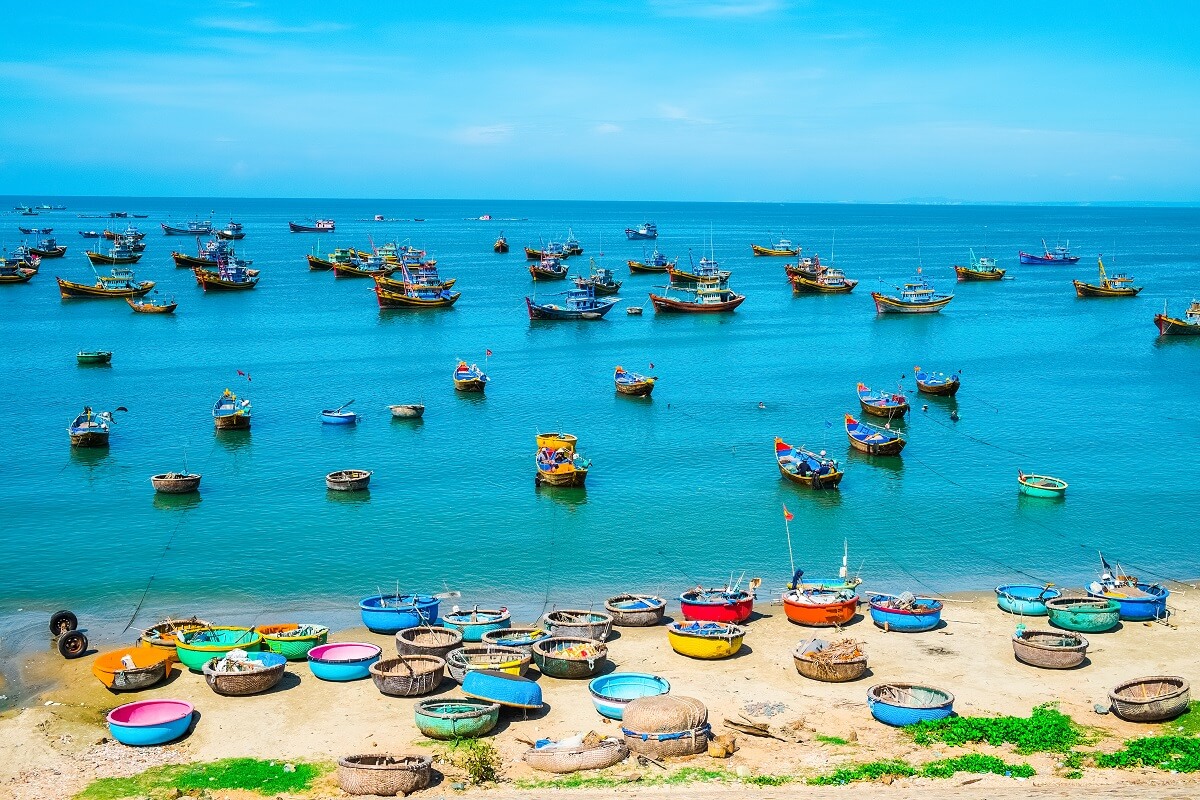
The peak beach tourism season coincides with the time when storms and tropical depressions are most active.
In reality, many storms have very complex paths, such as moving inland and then back out to sea before returning to land again. Similarly, there are consecutive storms that occur, which experts call the “storm-on-storm” phenomenon. There are times when consecutive storms occur over a period of one month, with a storm arriving every weekend (Saturday and Sunday).
This shows that the rainy storm season poses many unpredictable risks. Meanwhile, the peak of beach tourism coincides with the period when storms are usually most active (July, August, September, and October). Moreover, many families tend to book tours very early, so it is easy to encounter risks when facing unfavorable weather conditions. However, don’t let the fear of storms change your beach vacation plans, as you will miss out on the opportunity to immerse yourself in the beautiful beaches of Phu Quoc, Con Dao, Phu Quy, Cat Ba, Ha Long, and more. Being proactive and maintaining a relaxed mindset is what the experts recommend.
Research your destination thoroughly: Climate is an important factor in choosing a destination and preparing for a beach trip during the peak storm season. Consider the climate of your destination, including average hours of sunshine, air temperature, rainfall, and the probability of storms. Additionally, get familiar with the means of transportation, the situation of ships at sea, and the activities that will take place during the tour. You can also look for information about similar destinations to make comparisons. Don’t forget to update the information about your destination regularly so that you can make the right decisions, such as canceling tickets or changing schedules when there is a risk of unfavorable weather conditions.

Make sure you thoroughly research climate-related information before booking your trip.
Prepare your luggage for the rainy storm season when traveling: If you choose to travel to the beach during this period, you should be well prepared. Basic medical supplies such as a thermometer, fever medication, etc., are essential. You should also pack 1-2 extra sets of clothes in case you get stuck due to storms, and bring some extra dry food to ensure you have enough provisions in unexpected and force majeure conditions.
Comply with safety rules: Refrain from or stop engaging in beach bathing, sunbathing, or playing sports games on the beach when there are warnings, and only resume these activities when the authorities allow it. Especially during storms, follow the safety rules and stay in touch with the authorities to ensure timely information and the best assistance if needed.

During storms and tropical depressions, it is crucial to adhere to the safety rules and guidelines provided by the authorities.
Maintain a positive attitude: When there is a storm, the sea becomes turbulent, and the high waves can prevent you from engaging in beach activities, sunbathing, or playing outdoor sports games. Worse still, you may not be able to participate in other outdoor activities due to heavy rains. Experts have pointed out that storms attract a large mass of humid air, resulting in significant rainfall. The area of heavy rainfall is usually on the right side of the storm’s path and occurs from about 12 hours before to 12 hours after the storm makes landfall. Most of the heavy rainfall caused by storms is concentrated within a radius of 100-200 km from the storm’s eye.

Maintain a positive mindset and a relaxed attitude no matter what the circumstances.
Maintain a relaxed attitude to enjoy your vacation. You can still relax and experience indoor tourism. Sipping a cup of coffee, exploring the local cuisine, or indulging in spa treatments are some suggestions for your beach vacation during stormy weather. Believe that, no matter the circumstances, you will have fascinating experiences.
How to Stay Safe While Enjoying Beach Holidays During Storm Season 2024
The typhoon and tropical depression season in Vietnam typically spans from June to October, with the highest concentration of storms occurring in the months of July, August, September, and October. So, how can travelers ensure their safety when visiting the country’s beautiful beaches during this time?
Why Do Hotels Usually Provide Pencils Instead of Pens?
The hotel room desk or bedside table is often adorned with a notepad and pencil, a humble yet essential offering. This simple stationery set is a thoughtful touch, providing guests with a space to jot down their thoughts, ideas, or even a quick note to the staff. It’s a subtle invitation to write, to express, and to connect – a blank canvas awaiting the guest’s unique imprint.




































